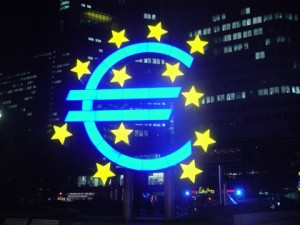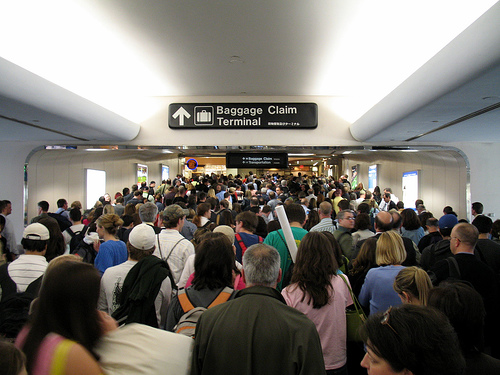No News is Good News in Poland
Poland used to be known for its dramatic events, and fury of news. This is no longer the case. While most of Europe is boiling, Poland is now an oasis of stability, almost boredom. Its economy keeps growing, but not spectacularly. Its handling of the EU presidency is smooth, but deals with marginal matters. And in this week’s parliamentary elections, after a very dull electoral campaign, Poles again voted in the same two-party coalition. This is surreal by Polish standards. For in the first 18 years since the end of communism, Poland had 13 different governments, a new one every 17 months on average. But now it looks as though Donald Tusk, the leader of the center-right Civic Platform party, …
A New Phase for Conflict Resolution in Transnistria: Prospects or Risks for European Security?
The deadlock in conflict resolution in Transnistria – as ‘frozen’ as it was – seems to start ‘melting’. It was about a year ago that Russian President Dmitry Medvedev tabled an exchange proposal to German Chancellor Angela Merkel: Russia would facilitate the resumption of the 5+2 negotiations on Transnistria (Transnistria, Moldova, Russia, Ukraine and OSCE, plus US and EU as observers) in exchange for setting up a joint EU-Russia council where Moscow would have a say in some EU decision-making procedures. Both sides stressed that their conditions should be satisfied first and rejected any speculations about preconditions. It is not surprising that after 20 years of Russian support to Transnistria, there is a lot of scepticism about whether Russia’s willingness …

Supporting the past, ignoring the future? Public sector support for the media
Though Western media systems are going through a rapid and often painful transformation today with the rise of the internet and mobile platforms, the decline of paid print newspaper circulation, and the erosion of the largest free-to-air broadcast audiences, the ways in which governments provide direct and indirect support for the media have remained largely unchanged for decades. The bulk of the often quite considerable direct and indirect subsidies provided continue to go to industry incumbents coming out of broadcast and print, while innovative efforts and new entrants primarily based on new media receive little or no support. In central ways, public support for the media remains stuck in the twentieth century, and some parts of these support systems are …

The Eurozone Council: are we a step closer to a European Government?
When in 1992 the decision to provide Europe with the single currency was adopted, voices were raised claiming that it may be difficult to have a monetary union without a political union. This is considered to be particularly the case on occasion of “asymmetric shocks” which may hit weaker “peripheral economies” in a monetary union, but not stronger “core ones”. The Eurozone, even at its infancy, has never constituted an Optimal Currency Area, but at a time of relative economic growth the Stability and Growth Pact (SGP) was by most considered as a sufficient tool to secure the sustainability of the single currency. However, the economic crisis of the early 2000s and the current “Euro crisis” have proved the opposite. …
Newspapers perform a valuable role in enforcing local accountability
In some ways this dichotomy might appear rather antiquated. After all isn’t everything online now and what difference do delivery systems make? But in reality we still see wide divergences between media organisations in terms of both consumption and production. First, consumption: The general tendency across many countries is that most people rely far more on TV than on the press for news. In the UK the disparity is very marked, with TV way out in front. Ofcom reported in 2009 that 74% of people in the UK used TV as their main source of UK news, way ahead of other news sources. More recent 2010 Ofcom figures surveying internet users showed TV ahead of the internet and newspapers as …
Social Media: No serious news-gathering operation can afford to ignore it
In the wake of the scandal currently afflicting Britain’s news industry, it is tempting to believe that anything might be better than putting our faith in the ethics and trustworthiness of professional journalists. So it is a good time to review what social media means for a news industry that is, to put it kindly, in a state of flux. As Tom Standage’s special report makes clear, social media and bloggers can contribute far more to news than was once thought. In recent years mainstream news organisations have often relied on them to break stories that professionals either couldn’t get to or didn’t know about, or to expose weaknesses or failures of interpretation amongst those same professionals. So there is …
Effective governance
The credit crunch and the disillusion with parliamentary democracy prove that there is a problem with the way we govern ourselves, as organisations and states. I would like to propose a solution which, if implemented, would go a long way to providing effective governance, economic growth, and social stability. THE PROBLEM All our existing institutions and regulations failed to prevent the credit crunch, the Madoff and Stanford frauds, the obvious risk of bankers lending to people who can’t afford to repay, and the collapse of numerous financial organisations. The banking crisis was caused by banks knowingly lending to people who couldn’t repay; therefore the crisis was predictable. So why did they do it? Because current governance processes don’t work. In …

Why is it so Hard to Reduce Net Migration to the UK?
David Cameron took office having pledged during his campaign to reduce net migration to the “tens of thousands rather than hundreds of thousands,” a commitment that has been reiterated numerous times since then by Cameron and other Conservative ministers (although it is technically a Conservative party goal rather than a coalition government policy). But reducing migration appears much easier said than done. The coalition government has put forward policies designed to reduce net migration through limitations on international students and skilled labour migrants. It has opened a consultation on policy toward settlement—the granting of indefinite leave to remain in the UK, as opposed to mere temporary resident status—and it plans to address marriage- or family-related migration soon. My colleagues at …









